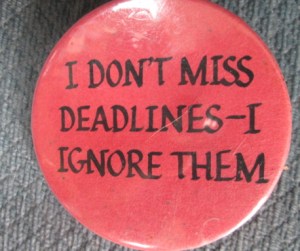The title of my novel, The Mud of the Place, comes from its epigraph, by the late writer-poet-activist Grace Paley (1922–2007): “If your feet aren’t in the mud of a place, you’d better watch where your mouth is.”
It appeared in a 1994 issue of The New Yorker — not in a major feature but in an announcement of Paley’s forthcoming reading at the 92nd Street Y in New York City. I think it leapt out at me, knowing I would throw my arms around it and love it forever.
I live on Martha’s Vineyard, a place that many people write and talk about but few who don’t live here get anywhere close to right. In August 1993, a year before I spotted that quote, we’d had a crash course in how wrong journalists with time on their hands could get it: then-president Bill Clinton and his family had vacationed on the Vineyard for the first time. Sensibly enough, they only occasionally ventured out in public with their formidable entourage of staff, Secret Service, and press.
This left the hordes — the regional and national press corps — with lots of downtime. They fanned out across the island, looking for “local color.” What they didn’t get was that in August most “locals” don’t spend a lot of time on beaches and in restaurants. They’re working two or three jobs and trying to keep their families together.
I was features editor at the Martha’s Vineyard Times, which turned out to be a target for the journalistic feeding frenzy: it was just around the corner from the ferry dock, easy to reach by car (though not so easy to park), and wouldn’t you expect the local newspaper to have its finger on the pulse? I’ll never forget the Hunter Thompson type who blew in looking like he’d spent the last month in the Australian Outback and breathlessly announced that he’d just jetted in from London, having heard rumors that Princess Diana was on the island, and had we heard anything?
I embraced Grace Paley’s warning as a challenge: my feet were in the mud of this particular place, so maybe I should try to write a novel about it? I was deep down convinced that I couldn’t write anything longer than 40 pages, so it took a while, but I managed. It’s not the whole truth, nowhere close, but I like to think it’s got truth in it.
So, yes indeed, place is important to me, and not just this particular place. Whether I’m writing fiction or nonfiction, if I don’t have a strong sense of the place where a scene is set, that scene usually won’t come to life. That goes for real-life places and places I imagine into existence. As a reader, I’ve found that the passages that stay with me longest and most vividly are usually the ones with the strongest sense of place.
There’s more to evoking a place than just getting the details right, although if you get details wrong, readers who know the place well will let you know, and if you get them wrong enough, they may stop trusting you. Whether you’re writing fiction or nonfiction, you’ll be doing more than just describing a place: you’ll be showing events that happened there, or a character’s memories or other associations with it.
If you’re trying to get a better feel for a place, imagine yourself (or your fictional character, or your nonfictional subject) coming upon it for the first time. Or leaving it for the last time. You might wind up with the beginning of a whole new story.






 Last April I did the
Last April I did the  It’s a rare audience that will sit still for a book-length work, but I’m lucky: I’ve experienced what has to be the next-best thing. Last Wednesday and the Wednesday before, I got to sit down and talk with a group of women all of whom had read my novel, The Mud of the Place, and were interested in what I was writing about, the lives of year-round residents in a seasonal resort.
It’s a rare audience that will sit still for a book-length work, but I’m lucky: I’ve experienced what has to be the next-best thing. Last Wednesday and the Wednesday before, I got to sit down and talk with a group of women all of whom had read my novel, The Mud of the Place, and were interested in what I was writing about, the lives of year-round residents in a seasonal resort.

